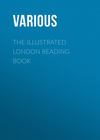Читать книгу: «The Mirror of Literature, Amusement, and Instruction. Volume 12, No. 333, September 27, 1828», страница 3
About half a mile from Matlock Baths is situated Willersley Castle, the seat of R. Arkwright, Esq., built by his father, the late Sir R. Arkwright. No spot could be more happily chosen for the site of a mansion than than of Willersley. By the liberality of Mr. A. strangers are admitted to the grounds, gardens, &c.; after passing through which, you reach the summit of the hills, which immediately face the Old and New Baths. This range of rocks is variously named; one, called the Lover's Leap, is a most terrific height. After winding by a circuitous route, you are led to the Lover's Walk, which is a shady path immediately at the base. Here lovers may in
"Sweet retirement court the shade."
In passing through one of the caverns, our guide, after describing to us the various places, in general had a comment to make; one I well remember. The solemnity of the situation, and stupendous grandeur of the cave, struck me with mournful awe. At one part of the cave there was a large hole or well, surrounded by a wooden railing, which our guide informed us was fathomless. A party passing through the cavern, in the full buoyancy of youth, after having expressed their surprise and admiration at the wonders of the place, were preparing to retire, when this spot was mentioned to them. Anxious to see all the curiosities, they returned to this, when one of the party, in a playful mood, placed his hands upon the shoulders of a young lady, and gently pushed her forward. Somewhat terrified, she uttered a scream, but finding herself unhurt, she endeavoured to turn round, when, horrible to relate, the railing gave way, and she was precipitated into the abyss. Picture to yourselves, if possible, the consternation caused by this dreadful occurrence. The alarm was given, ropes, &c. provided, a man immediately lowered, but all their efforts were ineffectual, for the body was never discovered.
M.S.P
STEAKS
People who want to enjoy a steak should eat it with shalots and tarragon. Mr. Cobbett says, an orthodox clergyman once told him that he and six others once ate some beef-steaks with shalots and tarragon, and that they "voted unanimously, that beef-steaks never were so eaten before."
FINE ARTS
THE CAT RAPHAEL
Gottfried Mind was born at Bern, in the year 1768. His father, but a short time before, had come in the capacity of joiner and form-cutter into Switzerland from Lipsich, in Upper Hungary, and had fixed his abode at Warblaufen, a village near Bern, where he was chiefly employed for the paper-manufactory of one Herr Gruner, and soon after his arrival purchased the freedom of Pizif, in the Waadtland. Young Mind, on account of his weak constitution of body, was in great measure left to himself, perhaps in the hope of making him healthier and stronger by the cheap and easy means of idle running about. Herr Gruner was a lover of art; during summer he had a German artist, named Legel, in his house, a talented and active man, who often, in country excursions, drew buildings and cattle from nature. This excited the attention of young Mind in some of his idle rambles: he followed Legel every where, and watched him while he worked. Legel, touched with compassion for the poor boy, showed him what he was engaged with, or what he had already finished; and, in the end, would take him along with him in his walks, or amuse him in his own apartment with exhibitions of prints. In particular, he allowed the boy, as often as he liked, to turn over Ridinger's Animals, of which Herr Gruner had a collection; and some of these Mind was not long in trying to imitate with the lead pencil, preferring above all lions, which continued long his favourite animals. These attempts Legel from time to time corrected, and, from less to more, the youngster at length ventured to copy from nature, like his master, and to draw some sheep, goats, and cats.
His father, the joiner, however, thought that to draw on paper was nothing, and wood was the only material on which it was worth one's pains to work. Accordingly, whenever the boy asked paper for drawing, he threw him a bit of wood; so that Gottfried was fain to try also cutting animals in wood, an art in which he speedily attained such dexterity, that, by degrees, his wooden sheep and goats came to ornament all the presses and mantel-pieces in the village. Occasionally, too, he tried drawing likenesses of some peasant boys of Worblaufen, or carving them in wood; and these attempts were not unsuccessful.
It is unknown on whose recommendation Mind, in his eighth year, was placed at the academy for poor children, which Pestalozzi had previously instituted at Neuenhof, near Bern, Aargau; but, in the year 1778, we find, in the authentic account of that institution, published by the Economic Society of Bern, the following short and somewhat clumsily expressed notice:—"Friedly Mynth of Bossi (Mind of Pizy), of the bailliwick of Aubonne, resident in Worblaufen, very weak, incapable of hard work, full of talent for drawing, a strange creature, full of artist-caprices, along with a certain roguishness: drawing is his whole employment: a year and a half here: ten years old." Neither do we know how long he remained at this academy; somewhere between the years 1780 and 1785, he came to the painter, Sigmund Hendenberger, at Bern, a man who had formed himself mostly at Paris in the Boucher school, but afterwards rather inclined to Greuze's style, and who, by his painting of Swiss family pieces, had acquired a considerable sum of money, and a reputation not undeserved. With this person Mind learnt his art of drawing, and colouring with water-colours, &c. but nothing more; in all the other branches of human knowledge he remained at the lowest grade; for he could with difficulty be made to write his name, and he had not the slightest idea of arithmetic. Thus, for example:—once, when he had to pay the postman six kreuzers for a letter, and Madame Freudenberger gave him the money in two silver pieces, he positively refused to take them and carry them down, affirming that two pieces were not enough; and, though his mistress assured him that these were equal in value to six kreuzers, still he persisted in his refusal, and went on grumbling until the six kreuzers, one by one, were counted into his hand. This ignorance and helplessness his master was not slow to take advantage of, so that poor Mind never once thought of looking about him for a better place. From his entrance into Freudenberger's house up to the time of his death, there is nothing to tell of him except that he spent his whole life on the selfsame stool, busied in colouring Freudenberger's sheets so long as he was alive, and, after his death, in drawing and painting, after his own fancy, bears, cats, and children at play, for the benefit of the widow, with the same pitiful day's wages which he had formerly received from his master. Many artists, after Freudenberger's death, would gladly have taken poor Mind into their service, but, like his beloved cats, he was so attached to the house, to his corner and its appurtenances, that he constantly turned a deaf ear to such proposals; and, at last, when Madame Freudenberger began to notice that the people wished to buy away her Friedli from her, she would not let them come near him; and only at rare times, and by way of special favour, allowed a few acquaintances, whom she could depend on, to visit him in her presence. She used, for the most part, to sit beside him herself, with her knitting implements, spurring him on to work. When he had to copy any of his drawings, he usually sketched the outline of them against the glass of the window; and if, on these occasions, it chanced that some boy, cat, dog, or other street passenger he might think worth looking at, withdrew his eye for a moment from the work, his taskmistress failed not to squall forth—"Gaping out again! Not a bit of work done all day! Sit down with thee! Mind thy paper, and give over spying!" How meanly he was kept in regard to clothing—how he had to sleep, for his life long, in a child's bed, far too short for him, for want of a straw mattress—and how, under such continual toil and miserable constraint, he at last sank, and died of water in the chest, it is now needless to say or to lament. We turn, rather, to the more pleasing contemplation of what Mind, in this most unfavourable situation, nevertheless succeeded in performing, and rendering himself as an artist.
Mind's special talent for representing cats was discovered and awakened by chance.4 It was not till after Freudenberger's death that Mind fully developed his peculiar talent for the objects to which, subsequently, through his whole life, he applied himself with such special affection, and which, accordingly, he succeeded in representing with such fidelity and truth. The condition of peasant children, their sorrows and joys, their sports and bickerings—the coarse insolence of the richer, the timid dispiritment of the needy, all stood in lively remembrance before his fancy, which liked to go back into that first and only period of his freedom, though, perhaps, also of his beggarhood. In Freudenberger's school he had learned a natural, easy, and comprehensible arrangement of little groups, and a neat, dainty manner, in which wise it was no difficult task for him to represent such scenes with truth and grace. Thus we find these pictures of his, which, for the most part, are painted on small sheets, his sports, banterings, quarrellings, sledge-parties of children, with their half-frozen but still merry faces, in their puffy yet not unpicturesque costume; his beggar-boys, with their rag-ware on their backs, are almost always genial and pleasing. In the course of his narrow, in-doors life, he had worked himself into a friendly, nay, as it were, almost paternal relation with domestic and fire-side animals, especially with cats. While he sat painting, a cat might generally be seen sitting on his back or on his shoulder; and many times he kept, for hours, the most awkward postures, that he might not disturb it. Frequently there was a second cat sitting by him on the table, watching how the work went on; sometimes a kitten or two lay in his lap under the table. Frogs (in bottle) floated beside his easel; and with all these creatures he kept up a most playful, loving style of conversation; though, often enough, any human beings about him, or such even as came to see him, were growled or grunted at in no social fashion. His countenance, especially in latter years, was a mixture of the bear's, the lion's, and the human, for most part of a dull brick-colour; so that many people, particularly children, were afraid to look at him. In figure he was very small, and bent; but, at the same time, had hands and fingers of extraordinary size and coarseness, with which, nevertheless, he produced the cleanest and prettiest drawings. His chief diligence and most careful elegance he brought to work in the painting of his beloved cats. In right delineation of their forms he had the art to seize the general nature of this animal, and, in the portrait-like indication of their various physiognomies, to reflect the specific character of each. The sycophantic look full of falseness, the dainty movements of the kittens, several of which are sometimes painted sporting round their dam—all this, in the most multifarious postures, turns, groups, sports, and quarrels, is depicted with a true observance to nature,—nay, one might say with genius and fidelity.
On Sundays and winter nights, Mind, by way of pastime, used, out of dried, wild chestnuts, to carve little cats, bears, and other beasts, and this with so much art that these little dainty toys were shortly in no less request than his drawings. It is a pity that insects, such as frequently exist in the interior of chestnuts, have already destroyed so many of these carvings.
At the Barengraben (bear-yard) in Bern, where a few live bears are always to be seen, Mind passed many a happy hour; and, between the beasts and him there seemed to prevail a singularly confidential feeling. The moment Friedli—such was the name Mind was best known by in Bern—made his appearance, the bears hastened towards him with friendly grumbling, stationed themselves on their hind feet, and received, impartially, each a piece of bread or an apple out of his pocket. For this reason, bears, next to cats, were a favourite subject of his art; and he reckoned himself, not unjustly, better able to delineate these animals than even celebrated painters have been. Moreover, next to his intercourse with living cats and bears, Mind's greatest joy was in looking at objects of art, especially copper-plates, in which, too, animal figures gave him most satisfaction.
Herr Sigmund Wagner, of Bern, who possesses a choice collection of copper-plates, frequently invited Mind, on winter Sunday evenings, to his house, and would then show him his volumes. While Herr Wagner might be writing, reading, or drawing, Mind, grumbled to himself half-aloud, made his remarks on each sheet, and frequently gave a true, stubborn, rugged judgment even on the most celebrated masters, especially on pictures of animals; for, among these, nothing pleased him but the lions of Rubens, of Rembrandt, and Potter, and the stags of Kidinger; the other animals of the latter he declared to be falsely drawn. Even the most applauded cats of Cornelius Vischer and Wenzel Hollar could not obtain his approbation. After such picture-reviewing he used to drink tea with Herr Wagner; and it seemed as if the baked ware presented therewith was somewhat to his taste. Such evenings were, to a certain extent, his heaven upon earth; nevertheless, he sometimes replied to Herr Wagner's invitation with a "could not come—his Busi (puss) was sick—he must stay with her." Another time he signified "that Busi was like to have kittens to-day, and so it was impossible to leave her."





















